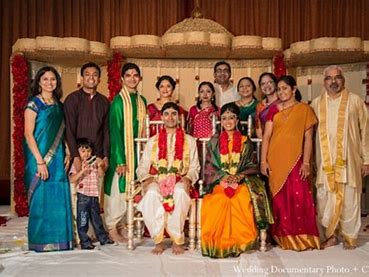The Vānaprastha Adventure, Installment 20

Here we continue and complete our list of no-risk practical items that vānaprasthas or aspiring vānaprasthas can adopt.
Wear tilaka, always
For a Vaiṣṇava to wear tilaka is one of the sixty-four standard practices of devotional service. As stated in The Nectar of Devotion (Chapter Six):
One should decorate the body with tilaka, which is the sign of the Vaiṣṇavas. (The idea is that as soon as a person sees these marks on the body of the Vaiṣṇava, he will immediately remember Kṛṣṇa. Lord Caitanya said that a Vaiṣṇava is he who, when seen, reminds one of Kṛṣṇa. Therefore, it is essential that a Vaiṣṇava mark his body with tilaka to remind others of Kṛṣṇa.)
Śrīla Prabhupāda instructed, “Always remain with tilaka everyone—that is our trademark.”1 Ideally, one should wear tilaka even while on the job in one’s ordinary work. In October of 1966, when Satsvarūpa Dāsa asked Śrīla Prabhupāda “Should I wear tilaka to work?” Śrīla Prabhupāda said yes. Satsvarūpa did. And though the boss was displeased, Satsvarūpa insisted that this was his religion, the boss relented, and Śrīla Prabhupāda was pleased.2 Śrīla Prabhupāda also told the story of the Muslim boss who ordered his Hindu workers that they were no longer allowed to wear tilaka at work. All the workers complied except one, who showed up the next day wearing bright tilaka. Recognizing the man’s steadfastness, the boss then said, “From now on, only this man can wear tilaka.”3
In any case, devotees who have retired from their jobs are generally free to wear tilaka, thus reminding themselves that they are Kṛṣṇa’s devotees and reminding others of Kṛṣṇa as well.
Turn away from social occasions

Too often when we’re old, we spend our time in social occasions—birthdays, graduations, weddings, anniversaries, and so on. The invitation cards are always on our tables, we go from one social function to the next, meeting our family members, meeting our friends, congratulating whomever it is, and this becomes our life.
But this is not helpful for vānaprasthas. First of all, it’s rooted in the bodily concept of life and the bodily relationships from which we ought to be detaching ourselves: my children, my grandchildren, my cousins, my nephews. . . Janasya moho ’yam ahaṁ mameti.4 Vānaprastha life means pulling away from all this.

All right, perhaps there may be some occasion we can’t avoid. And there may be social occasions with devotees, with kīrtana and so on. But don’t spend your old age moving from one social occasion to the next. We can ask ourselves, “How much do I want to engage even in Vaiṣṇava social occasions when these revolve around our biological relatives?” And we can ask ourselves, “Are these social activities just wasting my time, or am I contributing something to someone’s Kṛṣṇa consciousness? And if I’m not contributing something spiritually, why am I going?”
In fact, for a vānaprastha the Bhāgavatam condemns engaging in ordinary social activities:
gṛhasthasya kriyā-tyāgo
vrata-tyāgo vaṭorapi
tapasvino grāma-sevā
bhikṣor indriya-lolatā
āśramāpasadā hy ete
khalv āśrama-viḍambanāḥ
deva-māyā-vimūḍhāṁs tān
upekṣetānukampayā

“It is abominable for a person living in the gṛhastha-āśrama to give up the regulative principles, for a brahmacārī not to follow the brahmacārī vows while living under the care of the guru, for a vānaprastha to live in the village and engage in so-called social activities, or for a sannyāsī to be addicted to sense gratification.
“One who acts in this way is to be considered the lowest renegade. Such a pretender is bewildered by the external energy of the Supreme Personality of Godhead, and one should either reject him from any position or, taking compassion upon him, teach him, if possible, to resume his original position.”5
Let the gṛhasthas carry on with their social occasions without us.
Get rid of needless stuff
Over the years, we accumulate clothes, mementos, gadgets, knick-knacks, books, magazines, furnishings, things that “maybe someday I’ll need.” What we really need is not as much as we think. And many things we don’t need can be used by a temple or project, by other devotees, by charities, and so on.
So: Unburden yourself. Let it go. Sell it. Give it away. Somehow or other get free of it.
I recall hearing my godbrother and godsister Pañcaratna Dāsa and Atītaguṇa Dāsī, at a seminar in Māyāpur, telling how in the process of adopting vānaprastha life they found great pleasure in going through their accumulated stuff and getting rid of what they didn’t need.
Switch to a simpler car
Do we need a BMW, a Tesla, a Lexus, a Mercedes? Could we make do with a low-end car and be just as happy? Then why not?
We can consider, too, whether we even need a car at all. If we can get along without one, so much the better. And there comes an age when by continuing to drive we pose a danger both to ourselves and to others. And then, for sure, it’s time to quit.
Consider a more modest dwelling
Perhaps a switch would be more trouble than it’s worth. But perhaps moving to a more modest dwelling would be another opportunity to shed a material attachment and simplify our life.
So many of our expenses (and attachments) have to do with our home. So one might choose to sell one’s home and possessions and live in a simple flat near a temple. Or one might even live with bare necessities in a temple itself. Earlier I’ve given the example of Vṛndāvana-candra Dāsa and his wife, who did this and for whom it has worked out well. This fits within one method of vānaprastha life: to live in one holy place. And this may turn out to be a very happy life. I can divest myself of all the stuff that goes with a home—home improvements, home payments, home maintenance, home insurance and utilities and taxes. I can simply stay in the temple and do service. Husband and wife can live in the temple separately (which, in the temple, is how Śrīla Prabhupāda said they should), and they can serve happily.6
It would be sensible, though, to keep in mind that temples have their vicissitudes. Management can change, attitudes change, financial circumstances change, and as we grow older our needs may change. To think of the temple as a source of security is therefore likely to prove unrealistic. So we may stay in the temple but not depend on the temple. Again, we should always keep in mind, “It’s Kṛṣṇa I have to depend on.”
Alternatively, instead of living in a temple one might sell one’s home and move to a simple dwelling in a holy place like Vṛndāvana, Māyāpur, or Jagannātha Purī.

Cut your expenses
The more we cut our expenses, the easier it is to meet them.
Accept austerity
Austerity (tapasya) consists of undergoing voluntary inconvenience for the sake of spiritual realization. As Śrīla Prabhupāda says in his commentary on the Bhagavad-gītā (16.1‒3), “The entire varṇāśrama-dharma society is meant for tapasya. Without tapasya, or austerity, no human being can get liberation.” And austerity “is especially meant for the retired life. . . . A man retired from household life must practice austerities of the body, mind and tongue.”7
Again, we may not undergo the severe austerities accepted by great souls in past ages, but in Kṛṣṇa consciousness we can accept suitable austerities for the sake of gaining control over our minds and senses and making progress on the path back to Godhead. Vānaprastha life is also a good time for short or longer-term vows related to chanting, reading, eating, and so forth.
As Śrīla Prabhupāda explains, “The gṛhastha-āśrama is a sort of concession combining sense gratification with a regulative life” so that one can “retire in the middle of life and engage fully in austerities in order to transcend material sense gratification once and for all. Therefore in the vānaprastha stage of life, tapasya, or austerity, is strongly recommended.”8 Śrīla Prabhupāda adds that “in vānaprastha life the regulative principles are also to be strictly followed.”9
Learn to depend less on your partner
In married life a man naturally comes to depend on his wife for so many kinds of service, big and small. But what would we do if she weren’t there? Could I cook my own breakfast? The more self-reliant I can be, the more I can advance in family detachment. For women the thinking might be somewhat different. Women are supposed to be dependent. But what would I do without my husband? What if he were to die? How would I live? Would I rely more on my children? On friends and well-wishers? On my community? One day that time may likely come. So we can start to plan for it, be ready for it, and move toward it. Husband and wife can consider these matters together.
Finally, though, each of us will have to depend on Kṛṣṇa. We should know that ultimately each one of us is dependent, and that Kṛṣṇa is ultimately dependable.
Give up luxurious life
Especially if we’ve been materially prosperous (but even if we haven’t), we may have grown accustomed to a luxurious standard of life, with rich food, needless necessities, and so on. But now, in retirement, we can put this artificial way of life aside and live simply. Among other benefits, this will help us become free from needless agitation by sex. Freedom from such agitation may seem difficult to achieve, but Śrīla Prabhupāda says, “One can attain this stage of life by completely giving up a luxurious mode of life.”10 When we light a fire, at first there may be lots of smoke, itchy eyes, struggles against breezes, and so on, but once the fire catches, the wood steadily burns. Similarly, by undergoing the trouble to give up luxury in favor of advancement in Kṛṣṇa consciousness a husband and wife in retired life can attain all success.11 As Locana Dāsa Ṭhākura sings,
bhajo bhajo bhāi, caitanya nitāi
sudṛḍha biśwāsa kori
viṣaya chāḍiyā, se rase majiyā,
mukhe bolo hari hari
Just engage in devotional service to Śrī Caitanya Mahāprabhu and Lord Nityānanda Prabhu with great determination and faith. Give up trying to enjoy sense gratification and become absorbed in the taste of devotional service to Gaura-Nitāi. Chant Hare Krishna!12
All success will be assured.
Serve Kṛṣṇa with enthusiasm
As Śrīla Prabhupāda showed by his personal example, retirement from material life is a matter not of dry renunciation but of ever-increasing transcendental service. Commenting on the mood of the elderly Uddhava, Śrīla Prabhupāda writes, “Uddhava undoubtedly became old, but that does not mean that his spirit became old. His service attitude matured on the transcendental plane.” Śrīla Prabhupāda writes:
Transcendental service to the Lord is not mundane. The service attitude of the devotee gradually increases and never becomes slackened. Generally, in old age a person is allowed retirement from mundane service. But in the transcendental service of the Lord there is no retirement at all; on the contrary, the service attitude increases more and more with the progress of age. In the transcendental service there is no satiation, and therefore there is no retirement. Materially, when a man becomes tired by rendering service in his physical body, he is allowed retirement, but in the transcendental service there is no feeling of fatigue because it is spiritual service and is not on the bodily plane.Service on the bodily plane dwindles as the body grows older, but the spirit is never old, and therefore on the spiritual plane the service is never tiresome.13
As Śrīla Prabhupāda writes elsewhere, “The sound of the holy name—Hare Kṛṣṇa, Hare Kṛṣṇa, Kṛṣṇa Kṛṣṇa, Hare Hare—everlastingly increases the enthusiasm of the chanter.”14
Notes:
1 Initiation ceremony, July 17, 1971, Detroit. Regarding a party of Bhaktivedanta Institute scientists, Śrīla Prabhupāda similarly instructed his disciple Svarūpa Damodara, “You dress like up-to-date gentlemen, but tilaka must be there. That is our trademark.” (Conversation, March 31, 1977, Bombay)
2 Meeting Śrīla Prabhupāda, volume 1, chapter 1. Śrīla Prabhupāda Nectar, volume 3, story 6.
3 Śrīla Prabhupāda Nectar, volume 3, story 6.
4Bhāgavatam 5.5.8.
5Bhāgavatam 7.15.38‒39.
6“Gṛhasthas live outside the temple, for in the temple we do not allow even husband and wife to live together” (Cc. Ādi 7.38). Śrīla Prabhupāda addressed this matter in a series of letters in early 1972. “[I]n the temple husband and wife shall live separately, that must be or what is the meaning of spiritual society like ours?” Letter to Kirtiraja, February 28, 1972. “Regarding householders living in the temple; in India no woman is allowed to stay in the temple at night. But for our preaching work I have permitted women to stay in the temple. But, in the temple, husband and wife should live separately. There are many young brahmacaris and Sannyasis in the temple and men and women living together is simply a source of agitation, so therefore this is my order; ideally the husband and wife can live separately in the temple. If this is not possible they should live together close to the temple and attend temple arati etc . . . and if this is not possible the last alternative is to live away from the Temple and conduct your own deity worship etc. It is best to do the most ideal thing but whatever mode of living you chose the most important thing is to always remain one hundred percent in service of Radha-Krishna” Letter to Ravindra Svarupa, January 25, 1972. A letter to Kirtika Dāsī dated February 16, 1972, gives a similar conclusion.
7See also Gītā 17.14‒16.
8Bhāgavatam 4.23.4, purport.
9Bhāgavatam 4.23.4, purport.
10Bhāgavatam 4.28.44, purport.
11Bhāgavatam 4.28.44, purport.
12“Śrī Śrī Gaura-Nityānander Dayā” (Parama Koruna), verse 2.
13Bhāgavatam 3.2.3, purport.
14Bhāgavatam 3.21.11, purport.
This is part of a draft
This is an excerpt from a new book I have in the works—The Vānaprastha Adventure, a guide to retirement in spiritual life. While I’m working on it, I’ll be posting my draft here, in installments. I invite your comments, questions, and suggestions.

You must be logged in to post a comment.